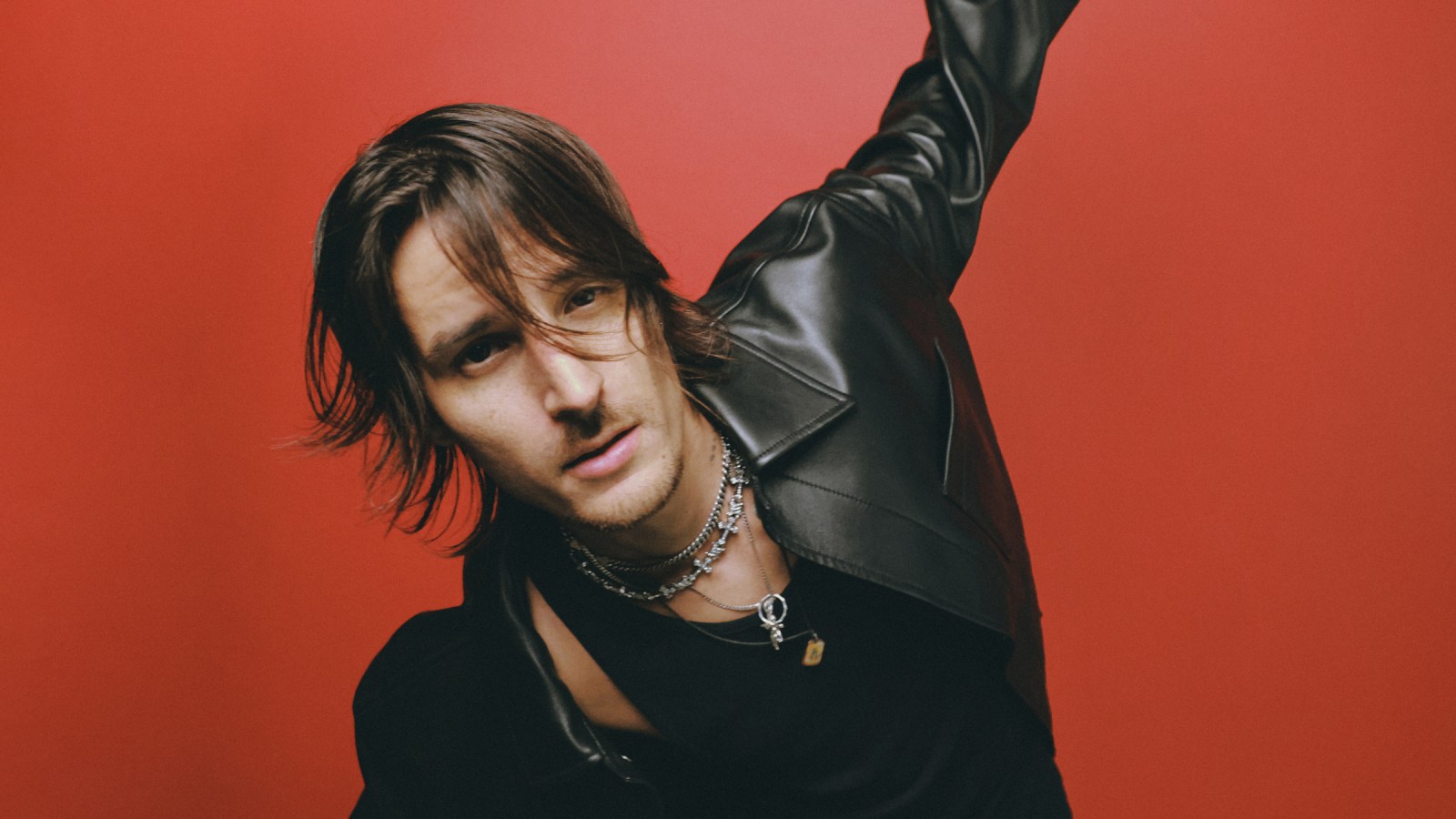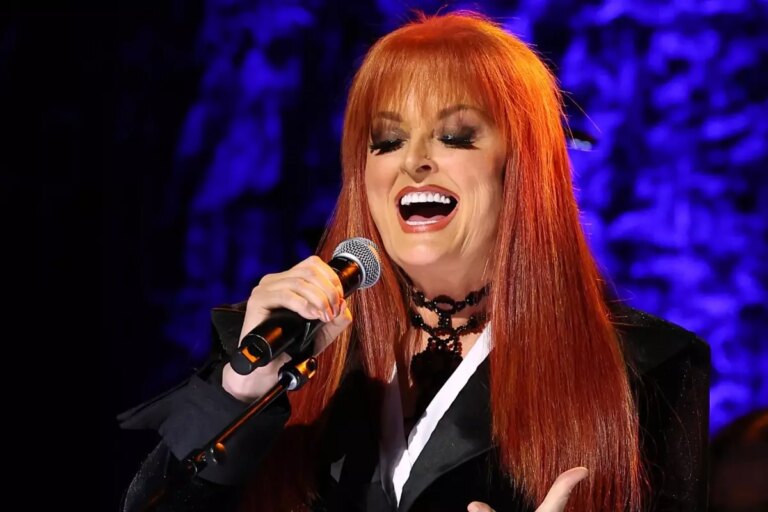D
anny Ocean is at a strange moment. He has just released the most tropical and accessible album of his career, but also the most intimate. Babylon Club not only expands the Venezuelan artist’s sonic boundaries but also encapsulates a profound narrative: that of a migrant musician who, after years of success and searching, has decided to pause to look inward at himself.
He’s speaking to Rolling Stone en Español just after the album is done. It’s a transitional moment where Danny allows himself to reflect with uncharacteristic sincerity. There’s gratitude, tiredness, appreciation, a bit of nostalgia. “I’m really happy, to be honest. This album gave me a lot of work. Sometimes you can get too picky with your own stuff, but with this one, I feel great,” he says.
The album began quietly, born out of the need to disappear. Danny was touring the United States, caught in the exhausting routine of an artist performing the same show night after night, while something inside was asking for a break. It was there, between airports and dressing rooms, when a desire appeared: beach. Not just as a landscape, but as a mental escape, a place where there was no pressure, no fame, no history, but only the present.
“I was singing and all I wanted was to escape to the beach,” he recalls. “Sure, everyone tells me, ‘But your songs are always about the beach.’ And it’s true. But I have never done an entire project about the beach before.”
For the first time in his career, he gave himself permission to make an album with time. Some songs had been sitting in the vault for years — one for almost a decade — while others emerged in the exact vibe he was feeling at the time. The result is a collection of songs that not only sound good, but build an emotional map, a journey back and forth between the burnout of success and the joy of reconnecting with oneself.
And then Babylon Club appeared, a name that had always floated around his personal universe as a kind of affectionate term that he uses as ad-libs in songs — “Babylon Girl,” “Babylon Boy” — but that now has become a core concept. “Someone said to me, ‘Hey, why don’t you use the Babylon thing you’re always talking about?’ And I had never done it. I think that was the exact moment. It all came together.”
For Danny, the club isn’t a literal place, it’s a symbol and a free space where people dance, breathe, and remember that life is a gift. “It’s about being who you are, about being free. We are consumed by the routine, and we forget that life is also for having fun.”
Even though Danny Ocean has long been known by a sound that merges minimal pop, dancehall, and sentimental electronica, Babylon Club represents a real expansion. It’s a sun-soaked album full of rhythms that push him toward the tropical, the Afro-Caribbean, the corporeal, without losing his identity. But this shift was not an improvised experiment. It was the result of a long, organic, deeply personal search.
“Nowadays, music gets made so fast… I’m constantly creating. But I saved a lot of songs for this album. Some of them have been with me for over five years,” he says. This time, there was no rush. Danny had the luxury of sitting down with trusted producers like Daramola, and new talents like One Rose and Manu Lara to explore structures, play with ideas, and polish the puzzle that was each track. His role wasn’t so much technical as it was more of an art director: shaping things, choosing moments, balancing energies. “I tell the producers: ‘Spit it all out. Ideas, sounds, crazy stuff.’ And then I’m in charge of cleaning up and polishing.’”
Afrobeat, merenguetón, Caribbean pop, classic salsa, and even a touch of house music dressed up as tropicalism all coexist in this album. “I don’t think about whether there’s a ‘Danny Ocean sound.’ I think we all have a muscle that activates itself. It’s taste. It’s expression. It’s intuition,” Danny says.

photograph by JESÚS SOTO FUENTES
That intuition is what’s allowed him to move freely across genres without losing his tone, his emotional timbre, or his way of telling stories. On Babylon Club, it’s as if he’s finally found a middle ground between what he loves and what the public wants to dance to. “I’m not thinking about people, I’m thinking about myself. I’m thinking about having fun. Music is more about the energy you bring into the studio than what you do once you’re there.”
At one point in the interview, Danny puts it plainly: “Last year I released two very personal albums. Now it was time to collaborate.” On Babylon Club, the list of collaborations is wide and diverse. Kenia OS, Arcángel, Sech, Kapo, El Alfa, Louis BPM. Each collaboration on the album was born from a genuine connection. He didn’t know everyone personally, there were no master plans, but everything flowed with a strange effortlessness. “Collaborating isn’t easy. Everyone says yes, but not everyone like being told what to do. That’s why I’m so grateful. With them, it just happened naturally,” Danny says.
The story with Kenia OS, for example, seems like it was fate. Danny had a song stored for years, and he thought of her. The connection was instant. The same thing happened with El Alfa, whom he met at an awards show, asked for his number, and then later sent him a track he wasn’t even sure he’d be into. But El Alfa responded with a FaceTime call and an explosive recording that took the song to a whole new level. “I told him, ‘I don’t know if it’s your vibe, but if you come on board, you would give it the street edge it needs.’ Said and done, he called me on FaceTime and asked what I thought. I told him, ‘I love it!’”
There’s also Louis BPM, a rising artist from Venezuela whom Danny had never met in person. He contacted him and texted him saying he wanted someone from his country on the album. He sent him the track “Sunshine” and the next day he had the vocals recorded. “We come from the same place. Now more than ever, we have to stick together,” Danny says.

Photograph by JESÚS SOTO FUENTES
That need to build community, especially within the Venezuelan diaspora, runs throughout the whole album. Here, Danny not only opens his creative space; he shares it. In each song, there’s a gesture of generosity, of giving voice to other perspectives, of multiplying in more tones. “What I take away from this isn’t just artistic, it’s human. Getting to know the person. That’s the real collaboration.” Babylon Club sounds like a club, like a gathering of friends who understand each other without talking too much.
There’s an invisible thread uniting everything Danny Ocean has done: Venezuela. It might not be obvious in every song, but it’s always there, like a background vibration. On Babylon Club, that bond is stronger than ever. Even though the album is full of colors, beaches, and danceable sounds, there’s a deep nostalgia underneath. That kind of nostalgia is deeply felt by those who left, who miss, who sing with their bodies in Miami or Mexico City, but with their soul in Caracas.
Danny is part of a generation that emigrated en masse, pushed out by a political, social, and economic crisis that forced him to leave behind his country, his friends, his childhood, everything. And although his music has reached millions, the pain of not being able to sing in Venezuela remains a void that no sold-out show can fill.
He says this without resentment — not from a place of anger, but from the conviction that being Venezuelan an identity and a mission. Every time he sings, he sings for those who stayed, for those who left, for those still resisting. That’s why he chooses his words so carefully and why he takes such care in what he stands for. “If it were up to me, I would have stayed a songwriter. But what drives me is something external: Venezuela. I run away from that and disconnect myself from the universe.”
In a Latin American scene where immediacy often erases history, Danny insists on carrying the weight of his country. Babylon Club is also that: a party album born out of mourning. In the end, the life that Danny tells — through rhythms, breezes and beats — is the life of thousands of Venezuelans who left.
Before he became a global star, he was a graphic designer. From cover art to videos, wardrobe, colors, live show aesthetics, and promotional cuts, Danny is involved in everything. “I went to Madrid to sit down with the video editor. I said, ‘I want to see all the shots, let’s put everything together.’ It’s my name on the cover, and if you don’t put 110 percent into it, no one’s going to do it for you,” he says.
A video that accompanies the album plays like a short film. Starring María Gabriela de Faría (Superman) and Christian McGaffney (Simón), it tells the story of a group of friends — exiled, hard-working, exhausted — that reunite once a year at the beach. It’s a story that reflects the reality of the Venezuelan migrant, which can feel fragmented, scattered around the world, yet deeply connected by memory and the desire to reconnect.

Photograph by JESÚS SOTO FUENTES
The aesthetic is defined by golden sand, green jungle, and turquoise water. Danny chooses to relate from a place of emotional simplicity, with the warmth of the tropics as a kind of spiritual refuge. “I wanted to convey that feeling of escaping in order to reconnect. Sometimes, when you emigrate, you only think about surviving. And you forget to live,” he says.
Babylon Club isn’t just something you hear. You see it. You feel it. Throughout the interview, Danny keeps repeating one word: genuine. “To do something I’m not comfortable with, it’s just not me. I’ve always been that way. My team knows that. I have no problem saying no,” he says. “I don’t like talking about ego in songs. That’s not my flow. Music is spiritual. It’s for connecting, not for bragging.”

Photograph by JESÚS SOTO FUENTES
What’s most impressive is that Danny never sounds rigid. On the contrary, his music is flexible, curious, and playful. He risks making salsa without being a salsa expert, explores merenguetón, flirts with the sugariest pop. “What I take away the most from this is that I’ve done it for fun. I never left behind the kid who gets excited doing things for the first time,” he says, smiling.
Something he has learn over the years is that music that truly connects can’t be fabricated. Some artists spend their entire career chasing a hit. Danny Ocean, on the other hand, got his too soon. His first song “Me Rehúso,” from 2018, went viral and catapulted him to the top of Latin music. In the beginning, he started in his bedroom with a laptop, a quiet studio where he could make music without exposing himself. He was shy, and it was hard to imagine himself in front of a crowd. “Me Rehús”’ pushed him out into the world. But when a debut is that massive, a question inevitably follows: How do you live with a song so big?
Danny doesn’t hide from the answer. “Do I think there’s ever going to be another song like ‘Me Rehúso?’ Of course, I think about it. But I’m at peace with it. If that was the song, my song, then so be it. I’m not going to fight the wind.”

Photograph by JESÚS SOTO FUENTES
That shows maturity. Danny understands what “Me Rehúso” meant, not only for his career, but for thousands of people who found in it a way to express the separation, the pain, and the hope of migration. It was a love song, yes, but also a song of rupture with a country, with a previous life. It was a farewell disguised as a pop song, a protest with an electronic base.
Today, years later, Danny sings it without cynicism. He is not one of those artists who deny their early success. “I’m very grateful for how things went. I’m not going to get into that ‘I don’t want to sing it’ nonsense,” he says. In Babylon Club, there’s a sense of reconciliation with that past. Danny no longer sings from the vertigo of having blown up overnight. It’s no longer just about hits, but about creating an experience. That’s why he’s put together a solid band, with musicians like Álvaro, from Bogotá —whom he calls “the mastermind” behind the sequences— and Mauri, his accomplice in the show’s execution. Together, they’ve crafted a live show that flees from pre-recorded tracks and embraces spontaneity and human energy. “The band gives you those crescendos, those dips, those moments of improvisation. It’s not the same with a track. It’s real, human communication,” Danny explains.

Photograph by JESÚS SOTO FUENTES
Danny approaches the live show like an emotional puzzle. It’s not just about which song to play, but how to make it work in that space, with that audience, with that vibe. Some songs shine in the studio, but need some tweaking to really hit home in a live performance. For him, the challenge is transforming each track without losing its essence. “Sometimes there are magical songs in the studio that don’t resonate the same live. You have to find the angle. Maybe it’s acoustic. Maybe it comes from another place. But it has to connect with me,” he says.
After all, Danny Ocean is still Daniel, the guy who made beats in his bedroom, who studied graphic design, who dreamed up a place called Babylon Club without even knowing it. Today, he has millions of listeners, a global career, and a message that represents an entire diaspora. But he hasn’t lost the thread of what brought him here. Sometimes he can get lost between dates, commitments, and decisions. But he’s learned to let go, to look back with gratitude, and to honor his journey without obsessing over what’s next. His mission, he says, is simple: To make room for those who come after. “Sometimes you can go crazy with so many details. But you have to learn to let go, enjoy it, look back and be thankful. That’s what I’m holding on to: never stop having fun. Always stay true to myself.”
PRODUCTION CREDITS
Creative Director & Photographer JESÚS SOTO FUENTES. Executive Production ALEJANDRO ORTIZ. Videography, Editing, Color Editing MANUEL GÓMEZ GONZÁLEZ. Stylist Director JORDAN PÉREZ & LUI. General Production DANIELA GARCÍA. Director of Photography MARCO ORNELAS. Photography Assistants MARCO ORNELAS & MANUEL GÓMEZ. Makeup and Hair LUZ GONZÁLEZ. Stylist Assistants ISABELLA WILSON & ALEXA MANCILLA. Production Assistants DIDIER MOLINA



